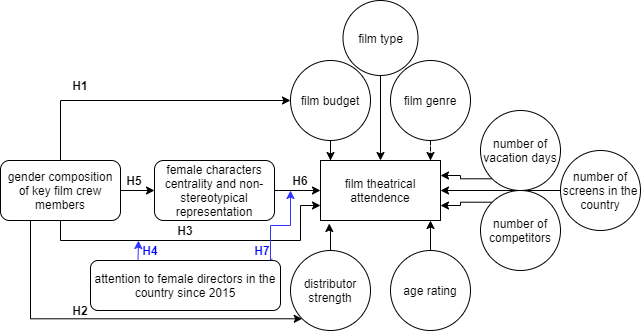- A
- A
- A
- ABC
- ABC
- ABC
- А
- А
- А
- А
- А
- HSE Campus in St. Petersburg
- Saint-Petersburg School of Social Sciences
- Department of Sociology
- News
- The results of the study on gender imbalance in Russian cinema have been published
The aim of the department is to achieve decision advantage in the fields of comparative social research, sociology of young people, sociology of science and education, and research into cultural diversity and tolerance. The department maintains close research ties and partnerships with the European University in St Petersburg, the HSE Moscow Sociology department, the RAS Institute of Sociology in St Petersburg and many other international partners. Faculty are all experienced teachers and researchers from leading Russian and western universities and research centres.
 Gendering Place and Affect: Attachment, Disruption and Belonging
Gendering Place and Affect: Attachment, Disruption and Belonging
Simpson A., Simpson R., Baker D. T. et al.
Bristol: Bristol University Press, 2024.
Yatsenko M. V., Brak I. V., E. D. Artemenko.
Neuroscience and Behavioral Physiology. 2025. Vol. 55. No. 1. P. 145-152.
In bk.: Gendering Place and Affect: Attachment, Disruption and Belonging. Bristol: Bristol University Press, 2024. P. 154-166.
SocArXiv. OSF. Open Science Framework, 2025

The results of the study on gender imbalance in Russian cinema have been published

The article analyzes the relationship between the gender composition of film creators and female representation on screen based on film distribution data from 2008 to 2019. It also examines the access of female-led teams to resources for film production and distribution, as well as the audience's reaction to films with strong female characters. The results show that, similar to trends worldwide, women hold significantly fewer key positions in Russian cinema than men. However, Russian audiences do not exhibit bias against films with non-stereotypical female characters at the center of the plot. The study also proposes a modification of the Bechdel-Wallace test based on the calculation of the proportion of dialogue spoken by women.
This research was part of a collaborative project between the Laboratory of Social and Cognitive Informatics at HSE University and the Producers Department of the Saint Petersburg State Institute of Cinema and Television. It involved over 90 students from both institutions.
The article is accompanied by databases and an suppliment providing a detailed description of the factors related to film attendance included in the model.
Xenia Leonteva
Research Assistant
-
https://elearning.hse.ru/en/mooc/
Massive Open Online Courses
-
https://www.hse.ru/en/visual/
HSE Site for the Visually Impaired
-
http://5top100.com/
Russian Academic Excellence Project 5-100
- © HSE University 1993–2025 Contacts Copyright Privacy Policy Site Map
- Edit
